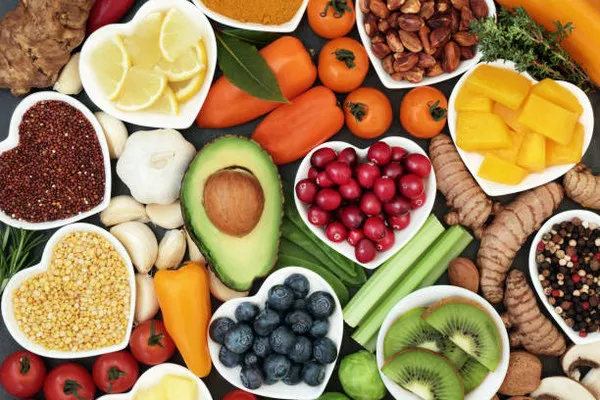For those adhering to the keto diet, understanding macronutrient balance is key. With this high-fat, low-carb regimen, the goal is to limit carbohydrate intake to just 5-10% of your daily calories to maintain ketosis—the state where the body burns fat for fuel instead of carbs. While fruit is a healthy option for most diets, its natural sugars make it high in carbs, posing a challenge for keto followers. However, with careful selection, it is still possible to enjoy fruits while keeping carbs in check.
Expert Insight on Keto-Friendly Fruits
Although fruit is often excluded from the keto diet due to its carb content, nutritionists encourage incorporating low-carb varieties. “Many fruits are rich in fiber, vitamins, minerals, and antioxidants, which are beneficial to overall health,” explains Ginger Hultin, a Seattle-based registered dietitian and owner of Champagne Nutrition. “Incorporating fiber-rich fruits helps to support digestion, keep you feeling full, and manage cholesterol levels,” adds Melissa Majumdar, spokesperson for the Academy of Nutrition and Dietetics (AAD).
To maintain a low-carb intake, dieticians recommend focusing on fruits with the lowest net carbs—those with fewer carbs once fiber content is subtracted. Here are 15 keto-friendly fruits that meet the carb threshold, allowing you to enjoy sweet, nutritious options without compromising your diet.
Top 15 Keto-Friendly Fruits
Avocado
A keto dieter’s best friend, avocados are incredibly low in carbs, offering just under 3 grams of net carbs per whole fruit. Packed with healthy fats and fiber, they’re perfect for boosting brain function and maintaining ketosis.
Olives
Despite being a fruit, olives often surprise keto followers. Rich in heart-healthy fats, a 140g serving provides about 21 grams of fat and less than 1 gram of net carbs. Their antioxidant properties further support anti-inflammatory benefits.
Coconut
Shredded coconut meat delivers about 5 grams of net carbs per 40g serving, along with healthy fats and fiber that promote digestive health. Opt for unsweetened coconut to avoid added sugars.
Blackberries
High in fiber (5g per 100g) and packed with antioxidants, blackberries have just 6 grams of net carbs per cup. They’re also a great source of vitamin C and can easily be added to smoothies or yogurt.
Raspberries
These tangy berries are rich in fiber and antioxidants. With only 5 grams of net carbs per 100g, they’re an excellent addition to your keto-friendly meals, offering health benefits like reduced inflammation.
Strawberries
Strawberries are among the lower-carb fruits, offering about 3-4 grams of net carbs per 100g serving. Beyond their carb count, they may help improve vascular health and insulin sensitivity.
Tomatoes
Technically a fruit, tomatoes are an ideal addition to a keto diet. With just over 5 grams of net carbs per cup, tomatoes are rich in lycopene, an antioxidant that supports heart health.
Cranberries
Known for their tartness, cranberries contain around 8 grams of net carbs per cup. They’re packed with vitamin C and can improve cognitive function, making them a versatile ingredient in salads and smoothies.
Kiwi
A small yet powerful fruit, kiwi contains only 8-9 grams of net carbs. Rich in potassium, vitamin C, and fiber, kiwis can aid digestion, making them a great choice for those following a low-carb lifestyle.
Starfruit
Also known as carambola, starfruit has a citrusy flavor and offers 5 grams of net carbs per cup. With its high vitamin C content, starfruit makes a refreshing snack.
Cucumber
Although commonly thought of as a vegetable, cucumber is a fruit that works well on a keto diet. With only 9 grams of net carbs per serving, cucumbers provide hydration and crunch, making them perfect for salads or as a snack.
Gooseberry
Slightly tangy and similar to grapes in shape and texture, gooseberries contain about 8.5 grams of net carbs per cup. They’re a satisfying option for those craving a low-carb fruit.
Eggplant
Eggplant is another fruit that’s often mistaken for a vegetable. With just 2 grams of net carbs per cup, eggplant is a versatile ingredient that can be used in many keto recipes, from salads to main dishes.
Zucchini
A favorite low-carb noodle substitute, zucchini is technically a fruit. With only 4 grams of net carbs per serving, it can be used in a variety of keto-friendly dishes, from zoodles to baked goods.
Pumpkin
A seasonal favorite, pumpkin is surprisingly low in carbs, with about 7 grams of net carbs per cup. Packed with vitamin A, it’s great for roasting, adding to soups, or even topping salads.
Incorporating Fruit into Your Keto Diet
When trying to fit fruit into your keto diet, it’s important to focus on low-carb options like those mentioned above. Consider using them in smoothies, baked goods, or as a topping for your meals. Additionally, reducing portion sizes can further help keep your carb count within limits.
As a general rule, remember that fruits with higher fiber content will have fewer net carbs. So, aim for whole fruits, and keep the skin on whenever possible to maximize the nutritional value.
By carefully selecting fruits and incorporating them into your keto diet, you can enjoy a variety of delicious, nutrient-packed options that won’t derail your goals.
Related Topics:
What Happens if You Don’t Take Protein After Workout


